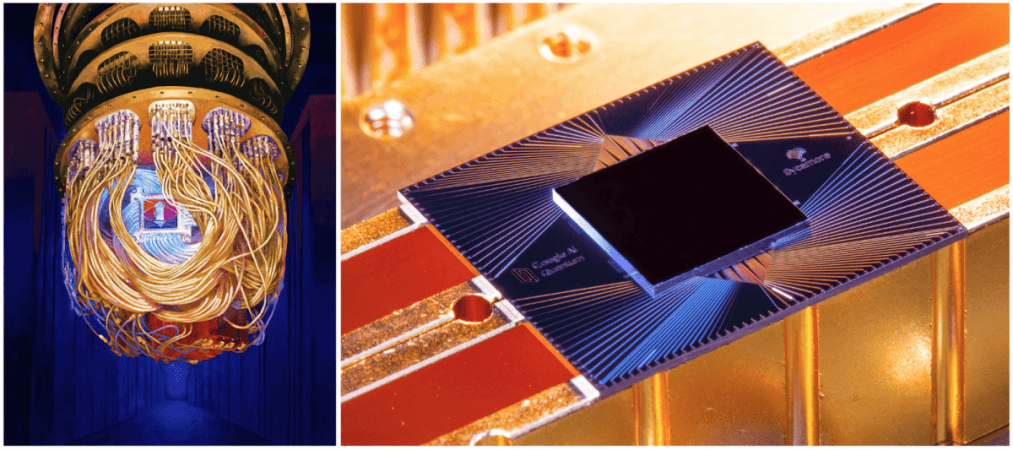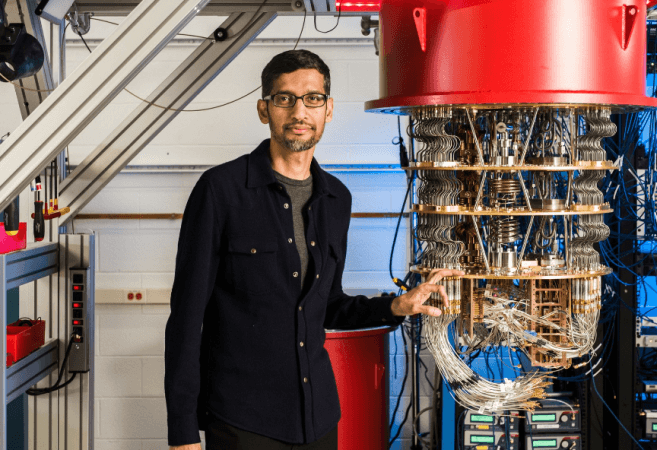Google is celebrating an important milestone in quantum computing so big the company's CEO Sundar Pichai is comparing it to the likes of Wright brothers' attempts at flight. Google is calling its breakthrough "quantum supremacy" and everything about it has been published in detail in its official blog post and in an article in the journal Nature. But if you haven't heard of quantum computing, quantum supremacy or even a quantum computer till date, these may seem like technical jargons.
We are here to give some background on what is quantum computing and why Google's quantum supremacy is such a big deal. The dictionary meaning of quantum computing is the "area of study focused on developing computer technology based on the principles of quantum theory, which explains the nature and behaviour of energy and matter on the quantum (atomic and subatomic) level."
Qubits, or quantum bits, are the basic units in quantum computing that hold bits of information. In the case of traditional computers, the information is stored in binary bits - 1 or 0, whereas qubits can be a combination of 0 and 1 at the same time. It's this ability of photons to exist in multiple states at any time that allows quantum computing to perform operations much quicker than conventional machines.

In that retrospect, major research conglomerates like IBM, MIT, Oxford University and Google have been working towards developing a quantum computer, which would put today's supercomputers to shame by gaining massive processing power and perform tasks using all possible permutations at the same time. But a quantum computer becoming a practical thing is still years away and putting quantum computing to practical application is easier said than done.
To put things in perspective, let's take Google's example. The breakthrough milestone it is celebrating in the field of quantum computing allowed it to solve a problem in 200 seconds that would take the world's fastest supercomputer 10,000 years to crack. But what use is a calculation without any practical value? Probably next to nothing, but the fact that Google has come closer to something that could one day result in "a fault-tolerant quantum computer" should mean something. Google has worked for 13 years to get this far.

"Achieving the necessary computational capabilities will still require years of hard engineering and scientific work. But we see a path clearly now, and we're eager to move ahead," Google said in the blog post.
In an exclusive interview with MIT Technology Review, Pichai listed some practical uses for a quantum computer in the field of science, medicine, building better batteries and solving dreading problems like climate change.
China is leading the charge in the field of quantum computing and the US is catching up. Major companies like IBM and Google make significant contributions to the field. While IBM has put out a bunch of quantum machines in the cloud for people to program, Google is keeping it all in-house. But that could change in the years to come if Pichai is to be believed, who said quantum computing, too, like AI, would be democratized.

















